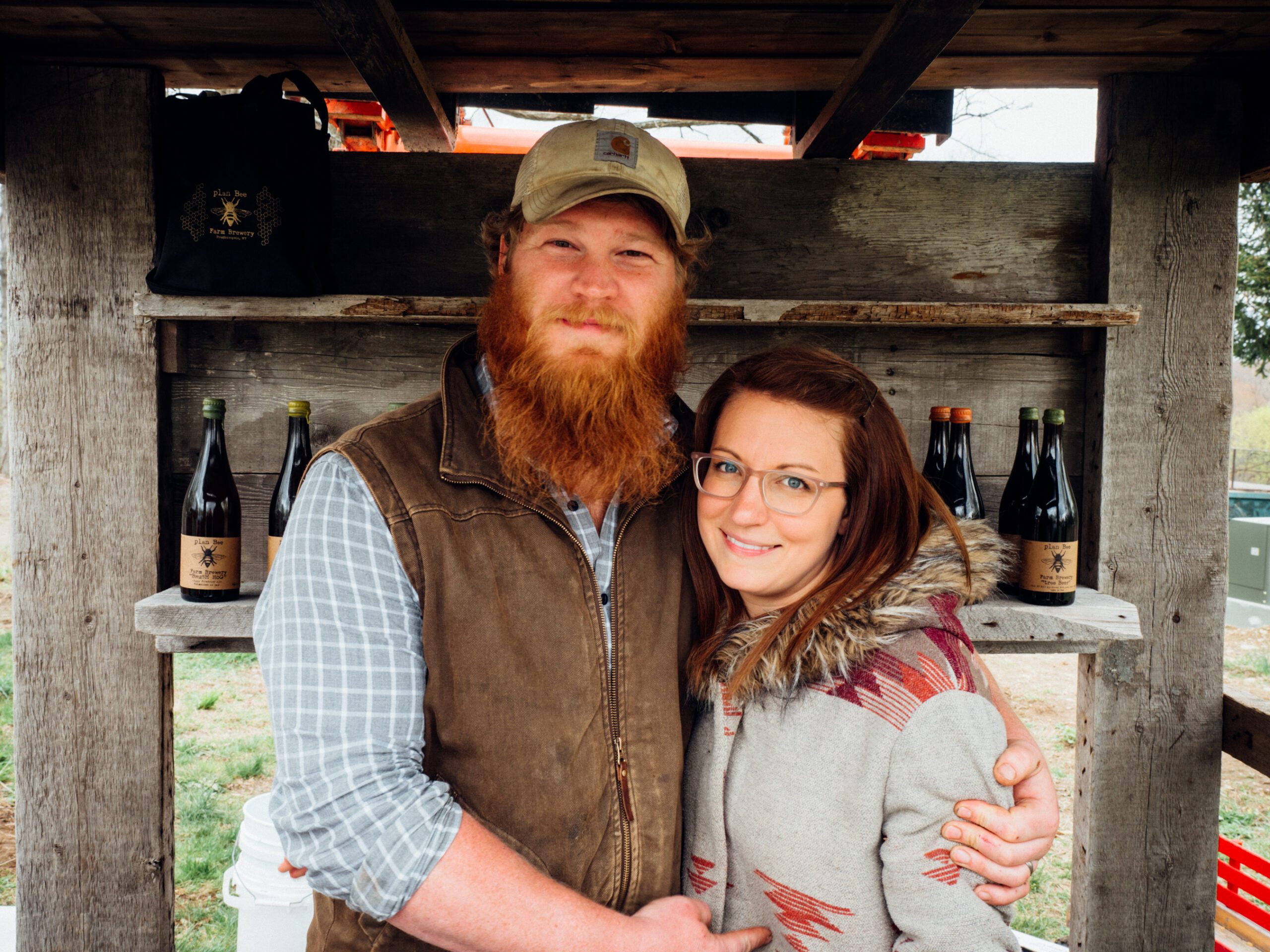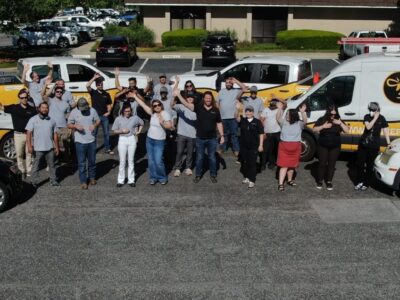“We don’t do anything to get rich here,” Emily Watson reflects over the phone with a lighthearted chuckle. “We started this because we wanted to build a sense of community and bring people together in a space in which people can feel comfortable.”
Less than one and a half miles from the outer city limits of Poughkeepsie, NY, Watson, and her husband Evan own a 25-acre plot of land, which is home to Plan Bee Farm Brewery.
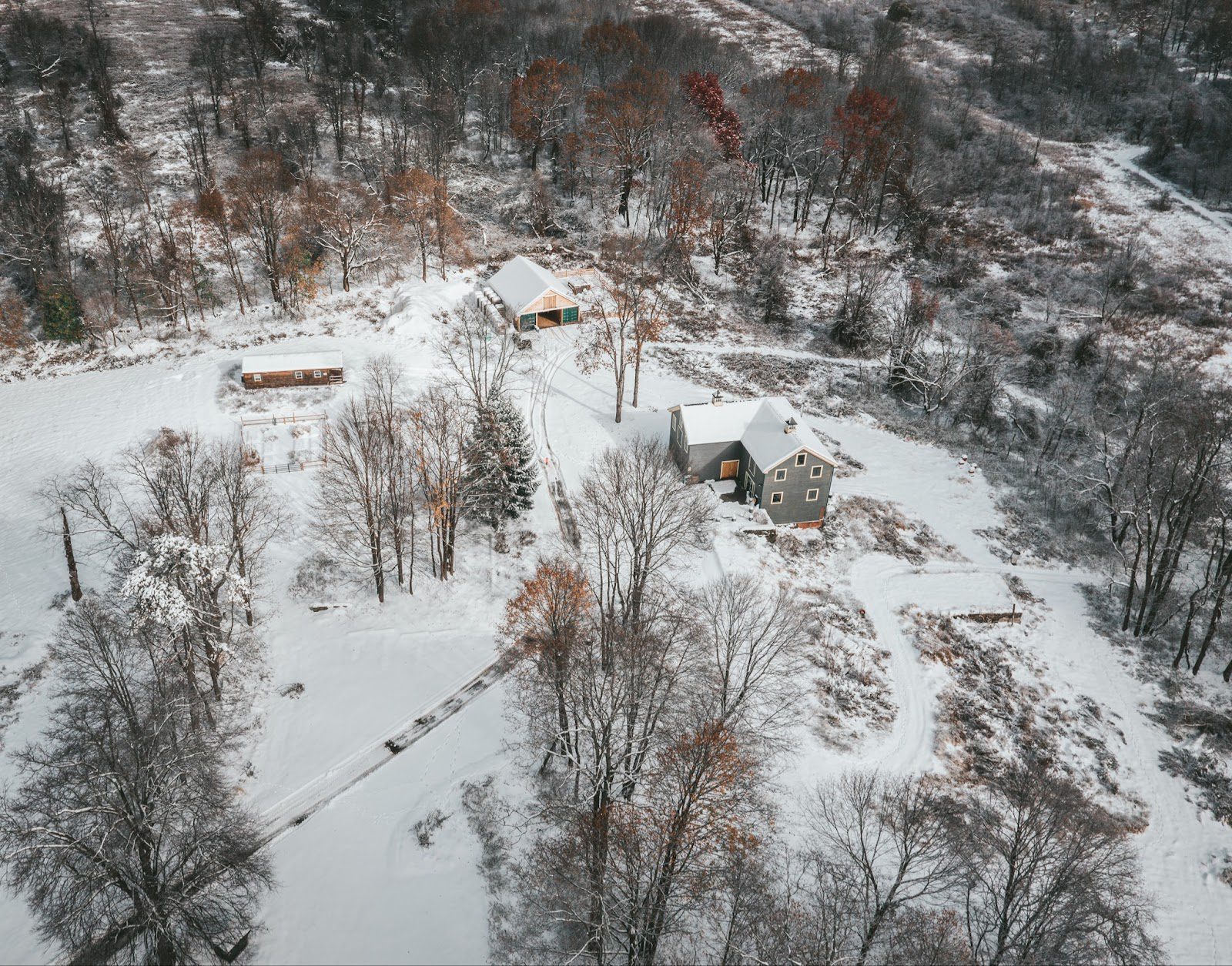
The farmland sits at the end of a lengthy, dead-end road on the periphery of the 30,000 person city that is the precise midpoint between New York City and the state capital, Albany.
“The last stretch as you’re coming down our road it literally feels like you’ve gone through some sort of like time warp,” the 36-year co-owner and co-founder told Consensus in an interview, adding that they adhere to a more old-world brewing method, so the surroundings provide a sense of place that is rather apropos.
Plan Bee’s story is far from conventional though, and the couple never set out to build a sustainable farm and beer company with a demand for their brews across the United States and even around the world. Through strong determination, a gifted home brewing kit to a rising star musician from his wife, and a commitment to the environment, Plan Bee Farm Brewery has evolved into a 100% locally sourced and brewed craft brewery – buzzing with success.
In 2007, new college graduate Evan Watson was just hitting his stride as a quickly emerging musician. He had met his then-girlfriend while both in their undergraduate years at a small liberal arts college in Ohio. Upon graduation, Evan just signed a recording contract, prompting him and Emily to move to Manhattan. By 2011, Evan was on a 50-show tour across the U.S. opening solo for Hart and Def Leppard in the rock stars’ Mirrorball tour.
After nearly seven years of making music and traveling around the country, the Watsons were yearning for a change to a more rooted life. “We got to travel all over,” Emily recalls. “It was fine, but we had decided that we needed to have a Plan B because Plan A wasn’t really the lifestyle that we wanted to live.” Racking their brains, Emily and Evan were looking for something that they both were passionate about, had experience in, and could build a meaningful, community-centric life with.
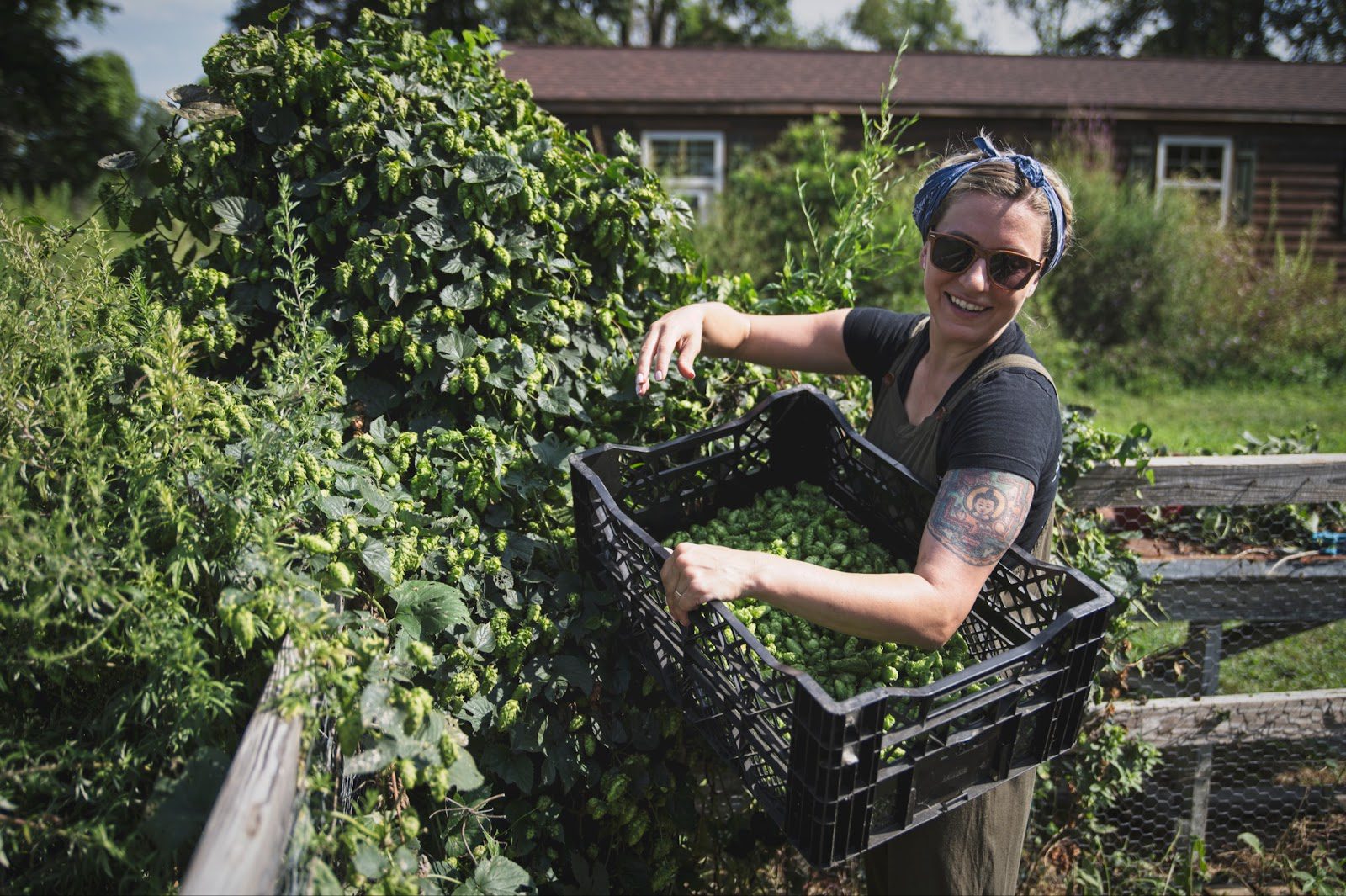
Brewing and agricultural work wasn’t too far afield for the pair. Emily, whose undergraduate degree is in geology, had grown up on a farm in Ohio and later continued on with a career at an environmental non-profit in the Hudson Valley area, responsible for protecting the Hudson River and the New York City watershed areas. Evan, a musician by trade, had previously been a hobbyist brewer when Emily bought him an at-home brewing kit as a gift in 2007. He went on to have a part-time job working at one of Hudson Valley’s largest craft breweries between shows and major music tours. In their next chapter, the two were ready to marry their experiences and embark on a unique, local and sustainable endeavor.
In 2013, they moved to Fishkill, NY, a village just south of Poughkeepsie with a population of 2,100. Residing there for two years, Emily and Evan began their dream of launching a 100% locally sourced and sustainable brewery on a one-acre plot of rented land as they tried out what would one day become their livelihood. “We called it our petri dish phase,” Emily joked, “we had an 8×10 shed where we registered our brewery and we just started growing our own ingredients, foraging and keeping bees,” Watson says she and her husband quickly took to the work and fell into the “locavore” movement that was rapidly expanding across the United States. The “locavore” initiative encourages the consumption of locally grown products as well as a deeper connection to the food and producers that harvest them.
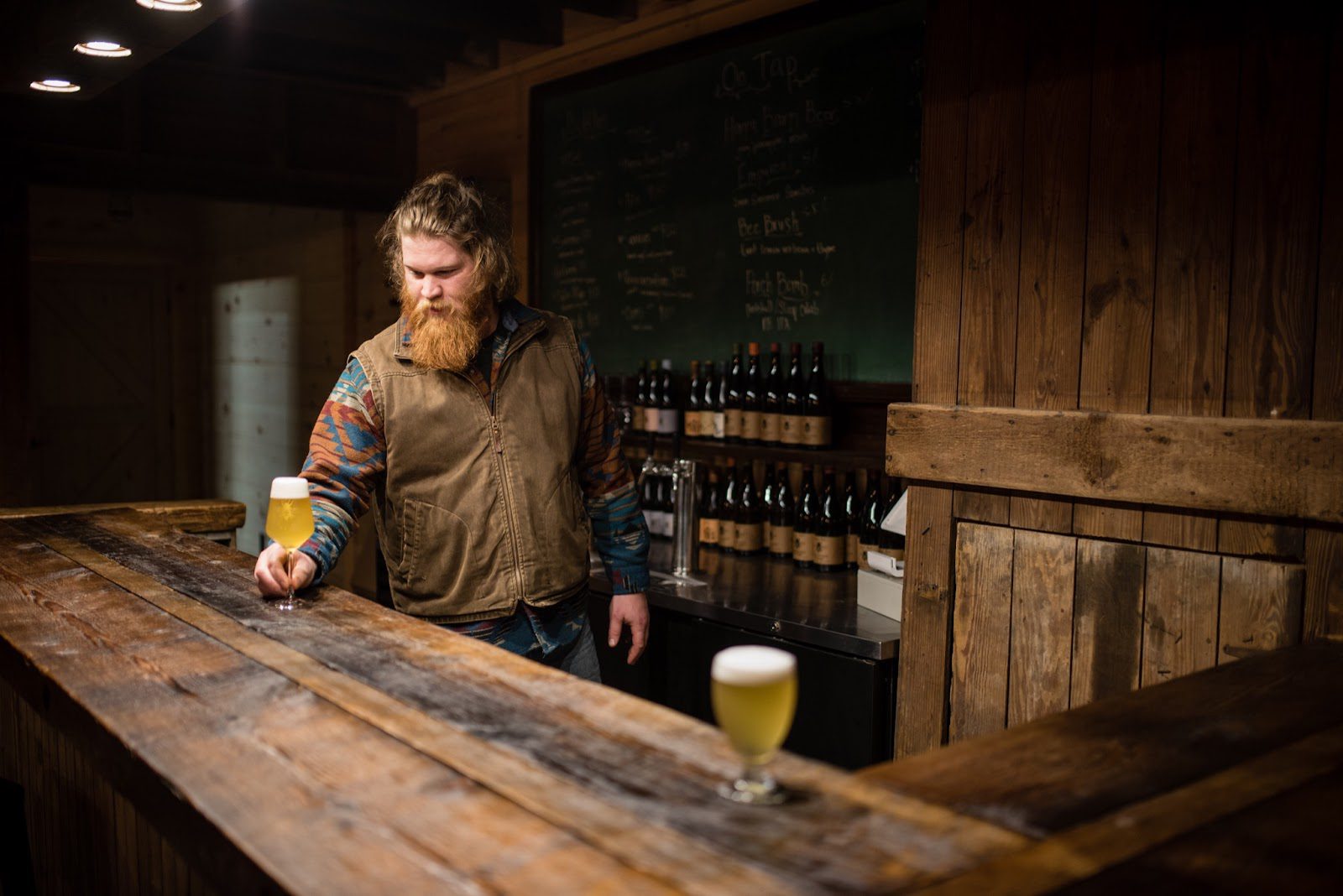
At that time, the craft beer scene in America was increasing exponentially but had not yet hit the peak that it would in 2015 when the nationwide total of craft breweries would surpass the prior high-point from 1873.
Emily and Evan needed a name for their endeavor. Always wanting to open a small business, Emily knew it needed to be something that clicked and caught the attention of consumers. The couple’s signature had been (and continues to be) using bees to harvest their own yeast – the ingredient involved in fermentation that eventually creates the alcohol content of beer. Plan A for them was always Evan’s music career, Plan B was beer. The jump from their “Plan B” to the double entendre of “Plan Bee” was clear.
In 2015, the two discovered the 25-acre farm in Poughkeepsie through a friend, where they would expand Plan Bee Farm Brewery in May of that year. The land and still-existing structures date back to the original farm from the 1780s up to the 1830s, including the barn that now houses their steam-fired brewhouse, oak fermenters and barrel-aged sanctuary.
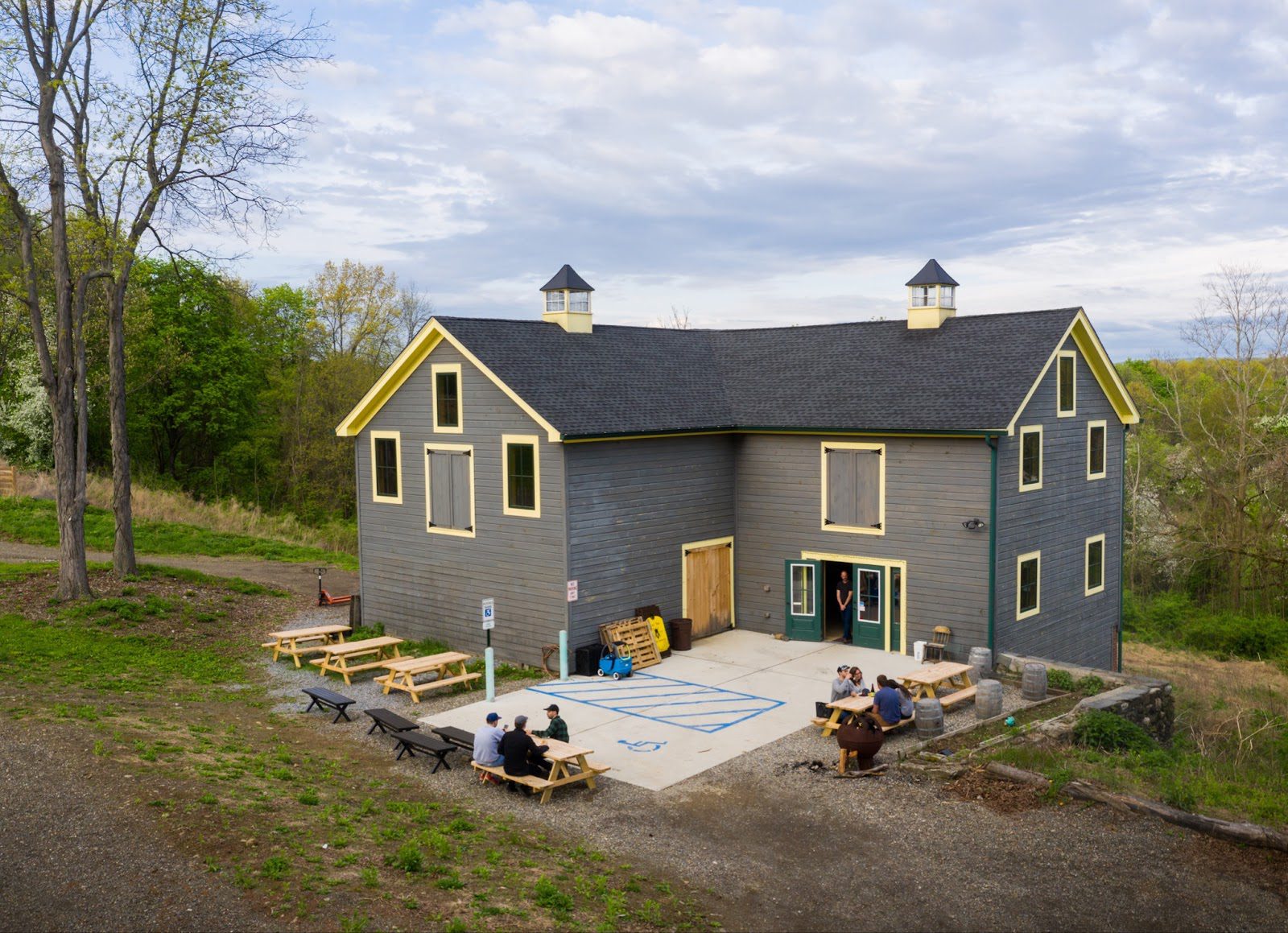
The decision to expand to a significantly more substantial plot of land was catalyzed by a number of factors. In part, the couple knew their methods were working and that their hobby turned lifestyle was scalable. A huge component of the decision, according to Emily, was their need to adhere to their 100% local promise and mission. “We [dedicate] ourselves to 100% New York State ingredients, and we’ve never wavered from that as our mission,” Watson says. In order to grow the business and keep that standard, Plan Bee needed the capacity to produce more of the ingredients their brews require. Any items they aren’t able to harvest on their land (like brewer’s grain, for example), are purchased from local farmers. The definition of local that the co-founders, who are the two sole employees of the brewery, settled on was “a 30-mile radius from the property.” Primarily, the brewery required a larger volume of grain, despite growing four acres of their own on the farm. Working with farmers in the area in 2015, Emily and Evan eventually made connections with farmers whose grain was being used for processes like feed grain or ethanol production, and urged them to switch to brewer’s grain – an effort that was successful in late 2015, finally providing the newly expanded brewery to ramp up production.
Today, Plan Bee Farm Brewing produces between 200 to 250 barrels of beer per year, with each barrel equalling 31 U.S. gallons, yielding around 15,000 gallons annually. For reference, beer mega-giant Budweiser produces over 340,000 barrels every day, for an annual total of 125 million barrels.
Despite their smaller size though, Plan Bee has been an immense success worldwide, no doubt due to Emily and Evan’s dedication to creating a hyper-localized brew. While about 50% of the brewery’s products are direct-to-consumer either in their taproom or in a bottle for take-out. The other (roughly) 50% is wholesale and distribution, selling directly to bottle shops and restaurants. For the comparatively small amount of beer they produce, Plan Bee’s reach is far and wide, and they have even developed a global presence in the craft beer world. They distribute to New York, Massachusetts, Pennsylvania, Maine, Rhode Island, North Carolina, Virginia, and Washington state, and have seen major interest from consumers in China, as well as smaller factions in Denmark, South Korea, Australia, and New Zealand.
In some ways, Watson says, the pair was ahead of their time, as the movement was not yet in full swing. From a business perspective, the timing of local movement combined with their drive, hard work and commitment to sustainability appeared to be the perfect recipe. Emily says it helped, too, that their product offerings were edging forward in front of the mainstream. “We were a bit ahead of [everything],” she recalls, with Plan Bee brewing only wild ales and sour beers – a fad that has taken off in more recent years. “[It was] a little bit foreign to the American craft beverage industry at the time,” according to Watson, “but of course now has become very popular.” Despite the changes to the craft beer industry and Plan Bee’s growth, they have always stayed true to their roots in sustainability.
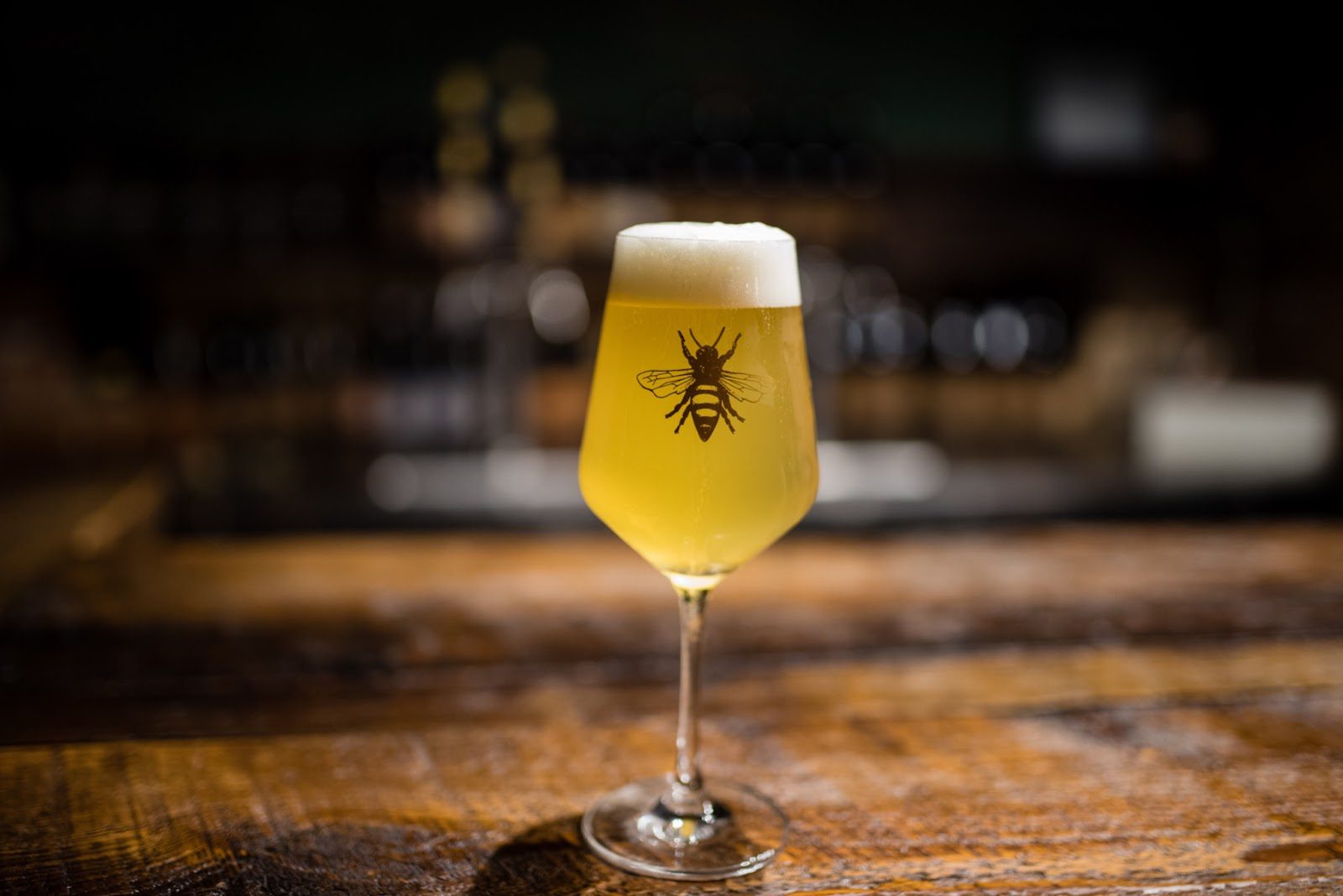
Registered with the New York State Energy Research & Development Authority as a low-impact business, the brewery offsets all of its electricity through solar and donates its spent grain to compost (and to feed the cows on their property), and of course, continues to use bees for their yeast production.
At the end of the day, all the success is a group effort, according to Emily. “It’s all sourced from New York so that all these businesses that support us, we support them. We do well, they do well, that’s the concept: we grow together,” Watson says. “It’s about investing in our community.”
Plan Bee Farm Brewery is located at 115 Underhill Road, Poughkeepsie NY 12603, three miles from the train station serving the Metro-North railway from Grand Central Station.

